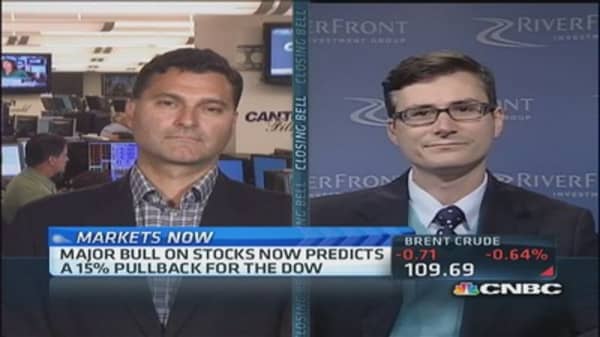"This market's been toggling and waiting for direction—it's a scenario in which it's not just economic data or geopolitical data, but still central bank driven," said Quincy Krosby, market strategist at Prudential Financial. "We've always said the road toward interest rate normalization is going to be difficult and dotted by detours and obstacles."
(Read more: Pros explain how to play housing with rising rates)
Art Cashin, director of floor operations at UBS Financial Services warned earlier Monday that "alarm bells" will go off for stocks once the yield hit the 2.90 percent level, adding that rising interest rates are already causing problems for equities in emerging markets.
"India is beginning to look particularly strange ... Indonesia is getting pounded," Cashin told CNBC. "You don't usually have these at the top of your list, but they lurk in the background."
U.S. stocks finished near session lows in light-volume trading Monday, with the Dow and S&P 500 logging their first four-day losing streaks this year. The Dow finished near the psychologically-important 15,000 level, extending losses after suffering its worst weekly decline of 2013.
"The big picture is really digestion. After last week's move, we broke through some key technical levels…but we're certainly not breaking down," reassured Polcari.
Still, the Dow and S&P 500 have declined nearly 4 percent each since hitting their all-time highs at the beginning of the month.
"In terms of seasonality—absent the Fed, economic data and geopolitical news—the next five to six weeks are typically not a strong period for the equity market so you'd expect to see a pullback," noted Krosby. "Also, we haven't seen a true correction in some time and I think investors want to see the market behave in its typical way without central bank intervention."






